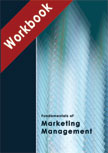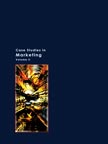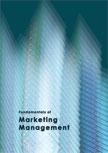Marketing Pristiq: The Advertising Challenge
|
|
ICMR HOME | Case Studies Collection
Case Details:
Case Code : MKTG229
Case Length : 26 Pages
Period : 2005-2009
Pub Date : 2009
Teaching Note :Not Available
Organization : Wyeth
Industry : Pharmaceuticals
Countries : US
To download Marketing Pristiq: The Advertising Challenge case study
(Case Code: MKTG229) click on the button below, and select the case from the list of available cases:


Price:
For delivery in electronic format: Rs. 400;
For delivery through courier (within India): Rs. 400 + Shipping & Handling Charges extra
» Marketing Case Studies
» Marketing Management Short Case Studies
» View Detailed Pricing Info
» How To Order This Case
» Business Case Studies
» Case Studies by Area
» Case Studies by Industry
» Case Studies by Company
Please note:
This case study was compiled from published sources, and is intended to be used as a basis for class discussion. It is not intended to illustrate either effective or ineffective handling of a management situation. Nor is it a primary information source.
Chat with us

Please leave your feedback

|
|




<< Previous
"The (Pristiq) ads are aimed particularly at patients who don't seek treatment or who have given up on treatment. They say,
'Maybe I need to accept the way it is.' We want to motivate them to talk to
their physician and not give up, and facilitate that dialogue."1
- Andreas Eggert, Vice President and Global Business Manager for Pristiq, in 2009.
"Depression isn't an easy category to advertise in. Beyond
the innate melancholy inherent in most of depression commercials [...],
antidepressant treatments have enough side effects to take up half a commercial
or one whole side of print ad."2
- George Koroneos, Pharmaceutical Executive, in 2009.
Introduction
|
In June 2009, Wyeth Pharmaceuticals, a division of Wyeth, launched a direct-to-consumer (DTC) advertising3 campaign for its anti-depressant drug, Pristiq. The company expected the campaign to give its brand a boost after sales in the first year of the drug's launch had been arguably unimpressive.
Wyeth had launched Pristiq in the US market in May 2008. The company promoted it as a revamped and more effective version of Effexor XR, its best-selling anti-depressant that had global sales of US$ 3.93 billion in 2008. Not only was Effexor XR a key revenue earner of Wyeth, it was also one of the top selling pharmaceutical products in the world. According to Wyeth, Pristiq was released in order to make patients shift from using Effexor XR (which was nearing patent expiry in 2010) and other anti-depressants available at that time in the market.
|

|
Marketing Pristiq: The Advertising Challenge
- Next Page>>
|
|










